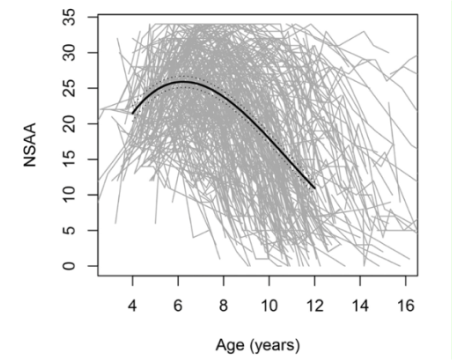DMD is a disease of muscle degeneration, which can lead to multi-organ impairment and may impact2:
Motor
function
Cardiac
function
Respiratory
function
Cognitive
function
